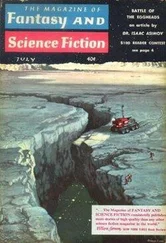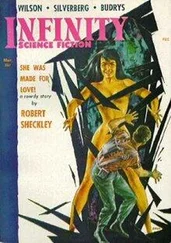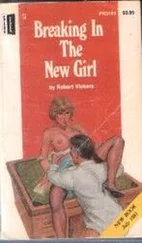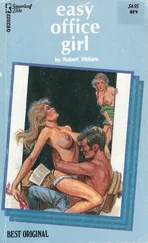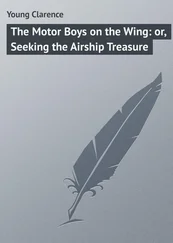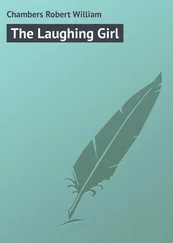Robert Young - The Dandelion Girl
Здесь есть возможность читать онлайн «Robert Young - The Dandelion Girl» весь текст электронной книги совершенно бесплатно (целиком полную версию без сокращений). В некоторых случаях можно слушать аудио, скачать через торрент в формате fb2 и присутствует краткое содержание. Год выпуска: 1961, Жанр: Фантастика и фэнтези, на английском языке. Описание произведения, (предисловие) а так же отзывы посетителей доступны на портале библиотеки ЛибКат.
- Название:The Dandelion Girl
- Автор:
- Жанр:
- Год:1961
- ISBN:нет данных
- Рейтинг книги:3 / 5. Голосов: 1
-
Избранное:Добавить в избранное
- Отзывы:
-
Ваша оценка:
- 60
- 1
- 2
- 3
- 4
- 5
The Dandelion Girl: краткое содержание, описание и аннотация
Предлагаем к чтению аннотацию, описание, краткое содержание или предисловие (зависит от того, что написал сам автор книги «The Dandelion Girl»). Если вы не нашли необходимую информацию о книге — напишите в комментариях, мы постараемся отыскать её.
The Dandelion Girl — читать онлайн бесплатно полную книгу (весь текст) целиком
Ниже представлен текст книги, разбитый по страницам. Система сохранения места последней прочитанной страницы, позволяет с удобством читать онлайн бесплатно книгу «The Dandelion Girl», без необходимости каждый раз заново искать на чём Вы остановились. Поставьте закладку, и сможете в любой момент перейти на страницу, на которой закончили чтение.
Интервал:
Закладка:
“But according to my father’s concept, the book of time has already been written. From a macrocosmic viewpoint, my father says, everything that is going to happen has already happened. Therefore, if a person from the future participates in a past event, he becomes a part of that event—for the simple reason that he was a part of it in the first place—and a paradox cannot possibly arise.”
Mark took a deep drag on his pipe. He needed it. “Your father sounds like quite a remarkable person,” he said.
“Oh, he is!” Enthusiasm deepened the pinkness of her cheeks, brightened the blueness of her eyes. “You wouldn’t believe all the books he’s read, Mr. Randolph. Why, our apartment is bursting with them! Hegel and Kant and Hume; Einstein and Newton and Weizsäcker. I’ve—I’ve even read some of them myself.”
“I gathered as much. As a matter of fact, so have I.”
She gazed raptly up into his face. “How wonderful, Mr. Randolph,” she said. “I’ll bet we’ve got just scads of mutual interests!”
The conversation that ensued proved conclusively that they did have—though the transcendental esthetic, Berkeleianism and relativity were rather incongruous subjects for a man and a girl to be discussing on a September hilltop, he reflected presently, even when the man was forty-four and the girl was twenty-one. But happily there were compensations—their animated discussion of the transcendental esthetic did more than elicit a priori and a posteriori conclusions, it also elicited microcosmic stars in her eyes; their breakdown of Berkeley did more than point up the inherent weaknesses in the good bishop’s theory, it also pointed up the pinkness of her cheeks; and their review of relativity did more than demonstrate that E invariably equals mc 2; it also demonstrated that far from being an impediment, knowledge is an asset to feminine charm.
The mood of the moment lingered far longer than it had any right to, and it was still with him when he went to bed. This time he didn’t even try to think of Anne; he knew it would do no good. Instead he lay there in the darkness and played host to whatever random thoughts came along—and all of them concerned a September hilltop and a girl with dandelion-colored hair.
Day before yesterday I saw a rabbit, and yesterday a deer, and today, you.
Next morning he drove over to the hamlet and checked at the post office to see if he had any mail. There was none. He was not surprised. Jeff disliked writing letters as much as he did, and Anne, at the moment, was probably incommunicado. As for his practice, he had forbidden his secretary to bother him with any but the most urgent of matters.
He debated on whether to ask the wizened postmaster if there was a family named Danvers living in the area. He decided not to. To have done so would have been to undermine the elaborate make-believe structure which Julie had built, and even though he did not believe in the structure’s validity, he could not find it in his heart to send it toppling.
That afternoon she was wearing a yellow dress the same shade as her hair, and again his throat tightened when he saw her, and again he could not speak. But when the first moment passed and words came, it was all right, and their thoughts flowed together like two effervescent brooks and coursed gaily through the arroyo of the afternoon. This time when they parted, it was she who asked, “Will you be here tomorrow?”—though only because she stole the question from his lips—and the words sang in his ears all the way back through the woods to the cabin and lulled him to sleep after an evening spent with his pipe on the porch.
Next afternoon when he climbed the hill it was empty. At first his disappointment numbed him, and then he thought, She’s late, that’s all. She’ll probably show up any minute. And he sat down on the granite bench to wait. But she did not come. The minutes passed—the hours. Shadows crept out of the woods and climbed partway up the hill. The air grew colder. He gave up, finally, and headed miserably back toward the cabin.
The next afternoon she did not show up either. Nor the next. He could neither eat nor sleep. Fishing palled on him. He could no longer read. And all the while, he hated himself—hated himself for behaving like a lovesick schoolboy, for reacting just like any other fool in his forties to a pretty face and a pair of pretty legs. Up until a few days ago he had never even so much as looked at another woman, and here in the space of less than a week he had not only looked at one but had fallen in love with her.
Hope was dead in him when he climbed the hill on the fourth day—and then suddenly alive again when he saw her standing in the sun. She was wearing a black dress this time, and he should have guessed the reason for her absence; but he didn’t—not till he came up to her and saw the tears start from her eyes and the telltale trembling of her lip. “Julie, what’s the matter?”
She clung to him, her shoulders shaking, and pressed her face against his coat. “My father died,” she said, and somehow he knew that these were her first tears, that she had sat tearless through the wake and funeral and had not broken down till now.
He put his arms around her gently. He had never kissed her, and he did not kiss her now, not really. His lips brushed her forehead and briefly touched her hair—that was all. “I’m sorry, Julie,” he said. “I know how much he meant to you.”
“He knew he was dying all along,” she said. “He must have known it ever since the strontium 90 experiment he conducted at the laboratory. But he never told anyone—he never even told me … I don’t want to live. Without him there’s nothing left to live for—nothing, nothing, nothing!”
He held her tightly. “You’ll find something, Julie. Someone. You’re young yet. You’re still a child, really.”
Her head jerked back, and she raised suddenly tearless eyes to his. “I’m not a child! Don’t you dare call me a child!”
Startled, he released her and stepped back. He had never seen her angry before. “I didn’t mean—” he began.
Her anger was as evanescent as it had been abrupt. “I know you didn’t mean to hurt my feelings, Mr. Randolph. But I’m not a child, honest I’m not. Promise me you’ll never call me one again.”
“All right,” he said. “I promise.”
“And now I must go,” she said. “I have a thousand things to do.”
“Will—will you be here tomorrow?”
She looked at him for a long time. A mist, like the aftermath of a summer shower, made her blue eyes glisten. “Time machines run down,” she said. “They have parts that need to be replaced—and I don’t know how to replace them. Ours—mine may be good for one more trip, but I’m not sure.”
“But you’ll try to come, won’t you?”
She nodded. “Yes, I’ll try. And Mr. Randolph?”
“Yes, Julie?”
“In case I don’t make it—and for the record—I love you.”
She was gone then; running lightly down the hill, and a moment later she disappeared into the grove of sugar maples. His hands were trembling when he lighted his pipe, and the match burned his fingers. Afterward he could not remember returning to the cabin or fixing supper or going to bed, and yet he must have done all of those things, because he awoke in his own room, and when he went into the kitchen, there were supper dishes standing on the drainboard.
He washed the dishes and made coffee. He spent the morning fishing off the pier, keeping his mind blank. He would face reality later. Right now it was enough for him to know that she loved him, that in a few short hours he would see her again. Surely even a run-down time machine should have no trouble transporting her from the hamlet to the hill.
Читать дальшеИнтервал:
Закладка:
Похожие книги на «The Dandelion Girl»
Представляем Вашему вниманию похожие книги на «The Dandelion Girl» списком для выбора. Мы отобрали схожую по названию и смыслу литературу в надежде предоставить читателям больше вариантов отыскать новые, интересные, ещё непрочитанные произведения.
Обсуждение, отзывы о книге «The Dandelion Girl» и просто собственные мнения читателей. Оставьте ваши комментарии, напишите, что Вы думаете о произведении, его смысле или главных героях. Укажите что конкретно понравилось, а что нет, и почему Вы так считаете.

